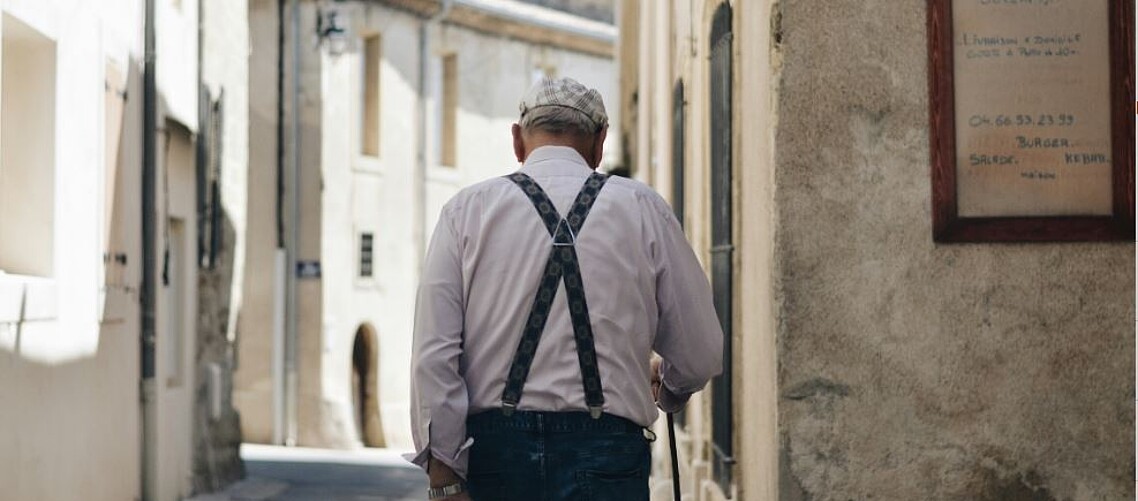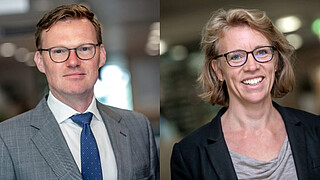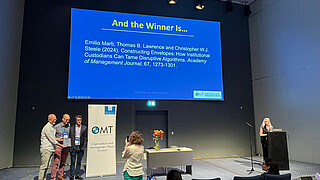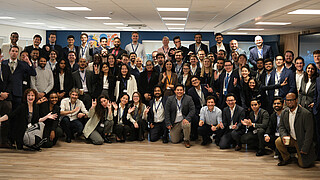With Dutch pension funds and insurance companies collectively managing assets worth roughly twice the size of the entire Dutch economy, the sector is uniquely positioned to drive sustainable change through redirecting capital flows and using stewardship to influence corporate behaviour. However, despite this potential, the pension sector's current role in sustainability remains limited due to fragmented communication and collaboration between key stakeholders.
RSM's expertise in sustainable finance and stewardship
Prof. van Dijk, professor of Financial Markets in RSM’s department of Finance, whose expertise lies in sustainable investments and climate risks, will be involved in research on how pension providers can communicate more effectively about sustainable investments with participants who are essentially ‘locked in’ to their funds. Dr Marti, associate professor in RSM’s department of Business-Society Management, a specialist in sustainable investments and stewardship, will examine how pension providers can better engage with companies on sustainability issues through shareholder dialogue.
“Pension providers often make investment decisions based on assumptions about what participants want rather than genuine understanding of their sustainability preferences,” explained Prof. van Dijk. “Meanwhile, companies sometimes claim they can't transition to sustainable practices because shareholders supposedly demand short-term financial returns.”
Bridging the collaboration gap
The research addresses two fundamental challenges hampering the pension sector's contribution to sustainability. First, insufficient understanding and communication between pension providers, participants, and companies has created isolated silos where each group operates without properly understanding the others' preferences and needs. Second, within each stakeholder group, misconceptions and barriers prevent individuals from making decisions that could advance the sustainability transition.
Dr Marti's research will focus particularly on how engagement specialists navigate tensions between financial returns and climate impact: “While most engagement specialists endorse the business case for shareholder dialogue, many also express motivations to create positive environmental impact. Understanding how they balance these goals is crucial for effective stewardship.”
Transforming decision-making through research
The project will develop practical tools and frameworks across five work packages. Researchers will investigate individual motivations for sustainable change within each stakeholder group and create innovative methods for pension providers to genuinely understand participants' sustainability preferences, including pioneering 'deliberative mini-publics' that engage representative groups in policy discussions.
The consortium will also examine how pension funds can foster the dialogue with companies on sustainable business models, whilst clarifying the legal framework governing pension providers' role in the transition.
Collaborative impact
The research brings together experts from finance, economics, law, psychology, and business studies across six universities, working alongside major pension providers including APG, PGGM, and several pension funds, as well as insurers a.s.r. and Nationale-Nederlanden. This collaboration through the established Netspar pension knowledge network ensures research findings will translate directly into industry practice.
About the consortium
Working with major pension sector organisations and international partners, the research consortium also includes Rotterdam School of Management, Erasmus University; Tilburg University; Maastricht University; University of Groningen; University of Amsterdam; and VU Amsterdam.





